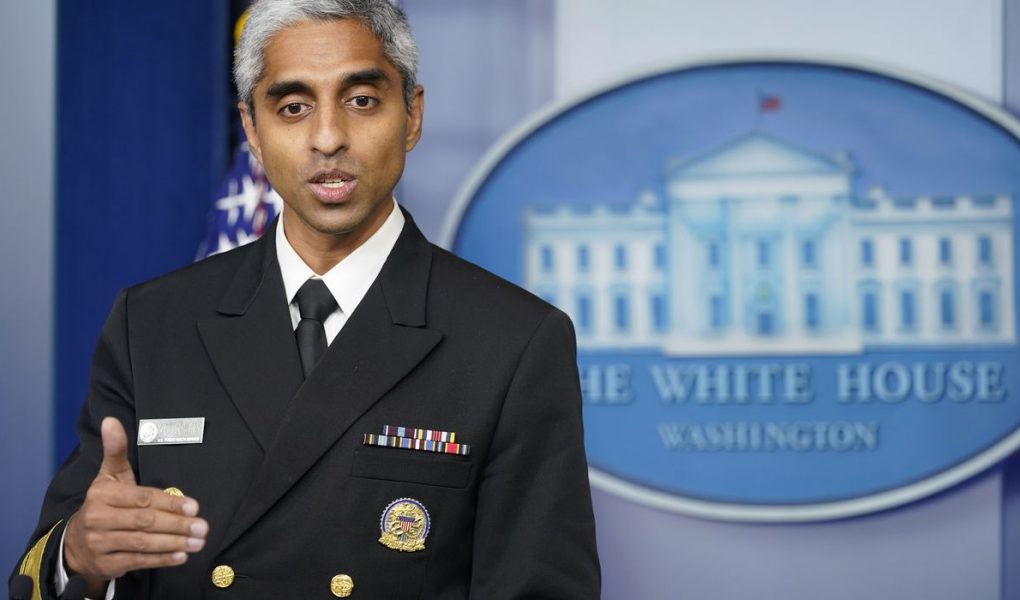January 27, 2022
On February 8th, the U.S. Surgeon General Dr. Vivek Murthy will testify at a hearing for the Senate Finance Committee to discuss challenges in mental health care for American youth. This testimony follows the report and Surgeon General’s Advisory to address the nation’s youth mental health crisis.
The report outlines evidence-based policy recommendations at the individual and systemic levels for schools, community organizations, health care systems, technology companies, media, funders and foundations, employers, and government to recognize and support the mental wellbeing of adolescents and youth.
The Surgeon General’s Advisory highlights the need for a coordinated response to address the mental health challenges that were exacerbated by the COVID-19 pandemic. It provides recommendations for how to address an urgent public health issue. According to the report, even before the COVID-19 pandemic, mental health challenges were the leading cause of disability and poor life outcomes in young people, with one in five children (ages 3 to 17) in the US with a reported mental, emotional, developmental, or behavioral disorder.

“It would be a tragedy if we beat back one public health crisis only to allow another to grow in its place. That’s why I am issuing this Surgeon General’s Advisory. Mental health challenges in children, adolescents, and young adults are real, and they are widespread. But most importantly, they are treatable, and often preventable. This Advisory shows us how.” – Dr. Vivek Murthy
U.S. Office of the Surgeon General. (2021). The U.S. Surgeon General’s Advisory: Protecting Youth Mental Health. Retrieved from https://www.hhs.gov/sites/default/files/surgeon-general-youth-mental-health-advisory.pdf
National surveys from 2009 to 2020 have shown major increases in mental health symptoms – including depression, anxiety, behavioral challenges, and suicidal ideation. The report cited an increase by 57 percent in suicide rates among youth 10-24 years of age between 2007 and 2018, and recent research covering 80,000 youth globally found that depressive and anxiety symptoms doubled during the pandemic. The severity in impact of mental health challenges also varies across subpopulations, whereby socioeconomically disadvantaged children are two to three times more likely to develop mental health conditions than their peers with higher socioeconomic status.
Researchers have hypothesized that the trends may reflect, at least in part, an increase in youth reporting their experiences, while other researchers point to the growing use of digital media, and broad stressors including racism, gun violence, and climate change.
Of note to brain and behavioral scientists, the report calls for federal funding to support:
- Improved mental health data collection and integration to understand youth mental health needs, trends, services, and evidence-based interventions. Increase in timely data collection and research to identify and respond to youth mental health needs more rapidly, with an integrated, real-time data infrastructure for understanding youth mental health trends.
- The strengthening of research and data integration across governments, health systems, and community organizations to ensure regular, longitudinal surveillance of national mental health trends across the age continuum. Data collection and data linkages should be improved to enable real-time surveillance (e.g., at the census tract level). Data should also be disaggregated to enable analysis of trends (by age, gender, race, ethnicity, disability status and type, sexual orientation, socioeconomic background, family characteristics, insurance status, etc.).
- More research into the relationship between technology and mental health, as technology companies are called to be more transparent with their data and algorithmic processes to enable this research. This would facilitate better understanding of the needs of at-risk youth, including youth facing multiple risk factors, and where governments and other stakeholders could engage directly with young people to understand trends and design effective solutions.
- Expanding social and emotional learning programs and other evidence-based approaches that promote healthy development. Examples of social, emotional, and behavioral learning programs include Sources of Strength, The Good Behavior Game, Life Skills Training, Check-In/Check-Out, and PATHS.
FABBS will be tuning in to the hearing on February 8th, as Dr. Vivek Murthy and other witnesses and experts in the field of youth mental health make recommendations to Congress for the path forward.